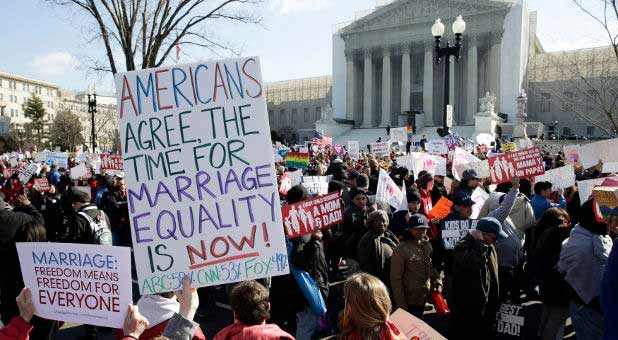Not So Fast: Prop 8 Is Still California Law
News reports that California’s Prop 8 has been struck down as unconstitutional are completely false.
Proposition 8 is the amendment to the California Constitution that defines marriage as the union of one man and one woman. A federal trial judge—Vaughn Walker—held that Prop 8 violates the 14th Amendment of the U.S. Constitution.
On Wednesday, the Supreme Court held that only the losing defendants in that case—the governor and attorney general of California—had standing to appeal that decision. When they refused to do so, Prop 8’s official sponsors filed the appeal with the U.S. Court of Appeals for the Ninth Circuit and pursued it all the way to the Supreme Court.
Since the official sponsors lacked standing to defend Prop 8, the Supreme Court refused to rule on the merits and also vacated (i.e., threw out) the Ninth Circuit’s decision.
But that means Prop 8 is still the law in California. Section 3.5 of the California Constitution specifically commands:
“An administrative agency … has no power:
“(a) To declare a statute unenforceable, or refuse to enforce a statute, on the basis of it being unconstitutional unless an appellate court has made a determination that such statute is unconstitutional;
“(b) To declare a statute unconstitutional;
“(c) To declare a statute unenforceable, or to refuse to enforce a statute on the basis that federal law or federal regulations prohibit the enforcement of such statute unless an appellate court has made a determination that the enforcement of such statute is prohibited by federal law or federal regulations.”
As of today, there is no appellate opinion (meaning an opinion issued by a court of appeals) against Prop 8. The Supreme Court refused to issue one and threw out the only other one (the Ninth Circuit’s). There is only a trial court opinion. So every agency in California is legally bound to regard Prop 8 as binding law.
Since no one who wants to defend Prop 8 has standing to appeal rulings on it to the Ninth Circuit, there will never be such an opinion in the federal court system. So the only way to get an appellate opinion would be in the California state court system. Someone would have to file a lawsuit regarding Prop 8 and then appeal it to a California court of appeals and then maybe to the California Supreme Court. Only when one of those courts holds Prop 8 unconstitutional can the public officials in that state regard it as stricken from the books.
That litigation could take years. And in the meantime, supporters of traditional marriage can continue making the case for marriage.
And so the struggle continues.
Ken Klukowski is the director of the Center for Religious Liberty at Family Research Council. This article appeared on Breitbart.com Wednesday.











